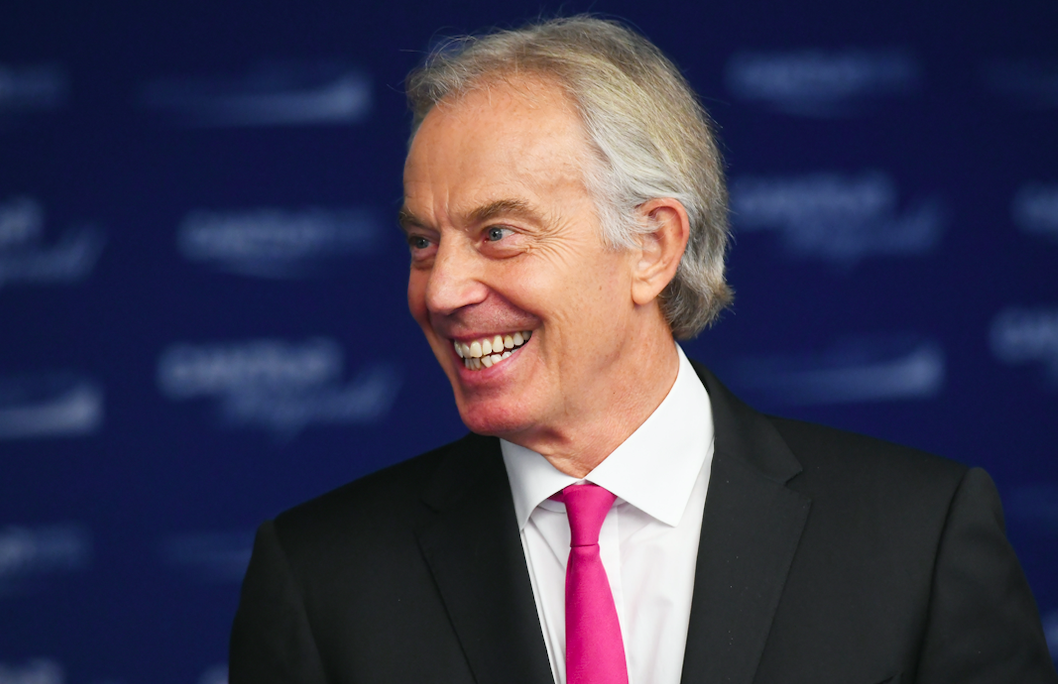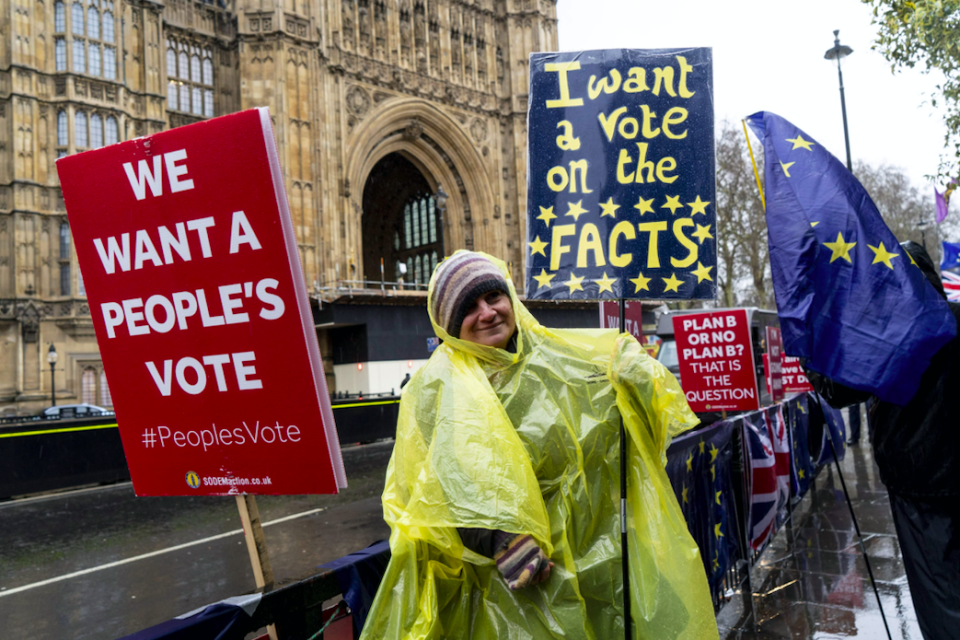Tony Blair says there is no point praying to God to solve the Brexit chaos

As voters look to politicians to solve the current Brexit chaos, it seems that Tony Blair thinks even God can’t help.
Speaking to BBC2’s Newsnight, the former Prime Minister was asked whether his prayers asked for help in the current impasse.
He said: “You can be as religious as you like but the thing about praying to God is he doesn’t tell you what the level of minimum wage is.
“I don’t know what God’s view of Brexit is and I don’t think it’s a sensible enquiry to have.”
“These MPs, they’re a disgrace, they’re just squabbling amongst themselves. They’re not!” – Former Prime Minister Tony Blair says he believes MPs “owe their constituents their own judgement” and May’s deal “resolves nothing”
Full interview at 22:30 @maitlis | #newsnight pic.twitter.com/SWvY8MRaHi
— BBC Newsnight (@BBCNewsnight) March 19, 2019
Mr Blair denied that he had been undermining negotiations by urging European leaders including French President Emmanuel Macron to “stand firm” on Brexit in the hope of the UK giving up on it.
Denying the accusation, Mr Blair said: “How am i undermining it [Brexit]? I’m saying the country should come to a view in Parliament and if Parliament can’t make up its mind or decides it wants to – you put it back to the people.
“What I’m saying to people privately in Europe is what I’m saying publicly.”
Read more:
Theresa May ‘to ask for short delay to Brexit’
Theresa May admits country in ‘crisis’ over Brexit
Liam Fox mocked over his no-deal Brexit trade agreement
Mr Blair said Theresa May should use any extension to EU withdrawal talks to allow Parliament the chance to decide what kind of Brexit it wants.
However, he said that a no-deal Brexit was no longer an option and that the question of a second referendum was “for a later time”.
He called for a delay of nine to 12 months to give Parliament to decide whether it wants “soft Brexit, hard Brexit or no Brexit”, with or without a second referendum.

Mr Blair said that any extension should be used “to come to a clear set of decisions about Brexit which we’ve avoided up to now and which we’ve got to do”.
“No deal is not our challenge,” said Mr Blair.
“Our challenge is … whatever you have by way of extension, make it count and make it count by having a plan for it that allows Parliament to reach a conclusive opinion on the central Brexit question – soft or hard?”
Describing the Conservative Government as being “in a state of dysfunction”, Mr Blair added: “Theresa May has taken this kind of extraordinary narrow view of this situation and just said ‘Right, here is my deal.

“If you don’t accept it then you’re basically defying the will of the people, you’re being unpatriotic’.
“Instead what she should be saying is ‘OK, here is what Brexit really does mean. It can mean this if you go for a soft option, it could mean that if you go for a hard option. What do you want?’”
Defending MPs for continuously blocking Brexit, Mr Blair added: “People say to me ‘MPs are a disgrace’. They’re not. They’re doing their day job, they’re doing what they’re supposed to do.
“Theresa May’s deal resolves nothing and what the MPs are doing is actually what they should do. They’re looking at the detail and they’re saying ‘Northern Ireland is a mess and the future relationship is a mystery and why on earth are we going to push the country down this path? It’s not in the country’s interest’.

“MPs owe their constituents their own judgement. They shouldn’t just say, ‘tell us what you want and we’ll do it’.”
On the topic of a second referendum, Mr Blair said that in discussions with EU leaders he has received “a pretty good reception” for his message that: “If Britain thinks again Europe should think again.”
He suggested that if the UK decided to stay in the EU, it would be possible to agree reform that “puts freedom of movement in its proper context and understands that, for example, you shouldn’t have influxes of labour that then undercut the wages of local workers”.

 Yahoo News
Yahoo News 

